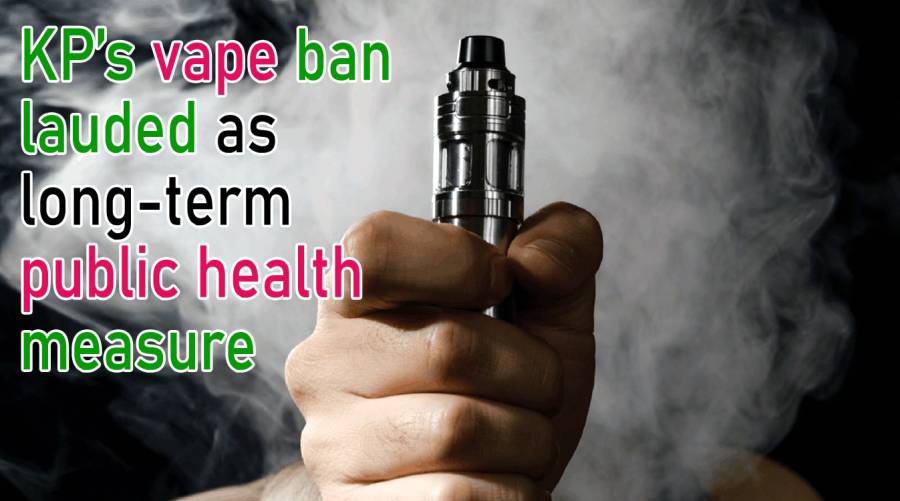KP’s vape ban lauded as long-term public health measure

PESHAWAR: The Khyber Pakhtunkhwa (KP) government's resolute stance on prohibiting e-cigarettes and vapes in the province has been much appreciated, with many lauding the decision as a significant step towards safeguarding public health in the long term.
The appreciation poured in during a recent "Public Health Stakeholders Consultation" convened by the Blue Veins organization to deliberate on regulatory measures concerning e-cigarettes and vapes in Khyber Pakhtunkhwa. The KP government recently issued a landmark notification imposing Section 144 for 60 days, effectively banning the storage, sale, and usage of e-cigarettes and vapes throughout the province.
The notification also prohibits sale of e-cigarettes and vapes to individuals under the age of 21, along with restricting their sale, storage, and use within a 50-meter radius of all educational institutions in the province.
Various stakeholders, representing diverse sectors such as district administration, public health, tobacco control programmes, law enforcement, media, and others, participated in the consultation.
In his opening remarks, Qamar Naseem, Programme Manager of Blue Veins, briefed the audience on the organization's initiatives aimed at curbing the sale of emerging tobacco products and their associated impacts. He highlighted the series of efforts undertaken, including engagements with key provincial authorities such as the KP Governor Haji Ghulam Ali, the chief secretary, and the special secretary.
Following the imposition of Section 144, Qamar said the KP government has tasked the excise secretary with drafting a new legislation, tentatively titled the "Tobacco and Nicotine Vendor Act," aimed at addressing existing legislative gaps.
Qamar underscored the necessity of this new law, noting that the current regulations inadequately address newer tobacco products like e-cigarettes and vapes, marketed as harm-reduction aids for smoking cessation.
Highlighting KP's pioneering role, Qamar emphasized that it is the first province in the country to implement a ban on selling e-cigarettes and vapes to minors and in the vicinity of educational institutions. He cited the global precedence, with 46 countries having already imposed comprehensive bans on these products due to their adverse health effects.
Mr Qamar also advocated for the inclusion of Naswar (snuff) in the tax regime, suggesting that this move could generate substantial revenue for the financially strained KP government, thereby facilitating socio-economic development initiatives.
Peshawar Assistant Commissioner Mr Haroon echoed the sentiment, commending Blue Veins' efforts in raising awareness about the health implications of emerging tobacco products, while stressing the need for strong political will to address this pressing public health concern.
Trending
Popular
Election lollypop: Trump’s tariffs will make drugs more expensive, ...
-
University of Karachi students develop ...
12:30 PM, 21 Nov, 2024 -
Experts call for proper regulation of ...
06:30 PM, 20 Nov, 2024 -
JSMU hosts MMIDSP meet: Alarming rise ...
04:30 PM, 18 Nov, 2024 -
PMA highlights diabetics’ mental ...
10:30 AM, 17 Nov, 2024




